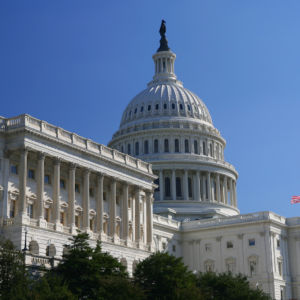When the House Select Committee on the Climate Crisis met for the first time on Thursday, it was the culmination of effort by progressive members of the Democratic caucus, including freshman New York Rep. Alexandria Ocasio-Cortez, who demanded action on climate change from their party leadership. And while the committee itself is bipartisan, the staff will also reflect the progressive politics of the Democratic Party. In fact, one of the first people hired has ties to both liberal billionaire Tom Steyer’s NextGen Climate organization and the left-leaning Union of Concerned Scientists (UCS), as well as the green-activist #ExxonKnew campaign.
In a tweet on Monday, Aaron Huertas announced that he had accepted a position as communications director for the Climate Crisis committee. Huertas’s hiring was confirmed by a post on the committee’s website, which added details about his work for UCS, Castor Communications, and running a field office for NextGen America in Ohio.
These two groups are key allies in the environmental movement. NextGen America (founded as NextGen Climate) was created by liberal billionaire Tom Steyer in 2013 to give the environmentalist movement both capital and manpower. At the state level, the organization worked to support pro-green policies at the ballot box. Huertas worked as a regional field director in Ohio in 2016, where he registered students to vote and encouraged them to commit to supporting clean energy candidates.
Prior to working for Steyer’s group, Huertas spent more than nine years with UCS, a group founded by scientists against the Vietnam war that today focuses its attention on climate issues. UCS is known both for its strong advocacy regarding climate change and its staunch anti-nuclear stance. At UCS, Huertas worked as a communications officer for the group.
These ties to the environmentalist movement are not altogether surprising for a committee founded to push for aggressive climate action. This goal was stressed by Democratic Rep. Kathy Castor (FL), chair of the select committee in her opening remarks.
“We are explicitly charged with finding solutions to solve the climate crisis so we can honor our responsibility to be good stewards of the planet for future generations,” she said.
Huertas also worked for the ExxonKnew campaign, a legal attempt by environmental activists to force Exxon Mobile to grant friendly state AGs access to decades of internal company memos. In 2015, Huertas was one of the PR staff brought in for damage control after what became known as the “RICO 20” letter. In the letter, 20 climate scientists asked then-U.S. Attorney General Loretta Lynch to prosecute energy companies under the RICO Act for alleged harm to the environment. They argued that the companies had colluded to prevent information about the connection between global warming and fossil fuels from leaking to the public.
The trouble was, a federal investigation into this issue would obviate the need for the state level lawsuits. Since activists were hoping to see tens of millions of dollars of damages awarded in these cases, this was a problem.
Climate activists rushed into damage control mode, scrambling to shift the narrative away from the idea of prosecuting individuals (the RICO 20 letter mentioned both corporations “and their supporters”) and back towards oil companies. Huertas was one of the key PR figures managing this change in messaging.
In the end, Exxon released more than 3 million pages of documents and more than 100 hours of testimony.
Despite the extensive use of state resources, the documents obtained by the New York and Massachusetts Attorneys General did not uncover massive wrongdoing. When the New York AG’s office finally filed a suit against the company in October, it alleged that Exxon had misled investors about the risks climate change regulations posed to its business. This was far less than many supporters had hoped for, especially given the AG’s broad access to company documents.
Huertas’s role in promoting the ExxonKnew cases was not included in press releases about his new role at the Committee on the Climate Crisis. It is, however, a likely sign of things to come.

